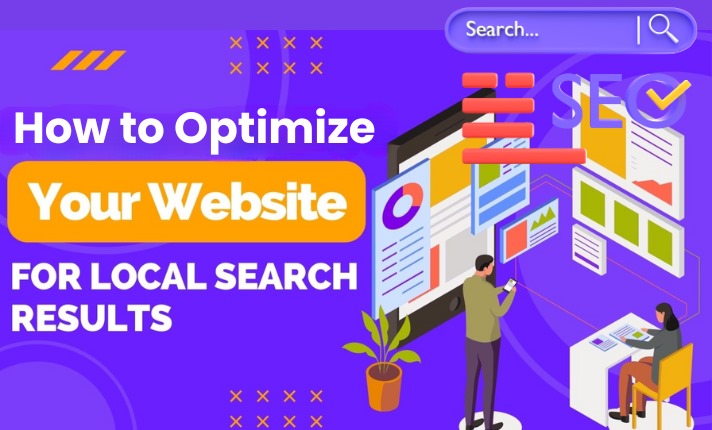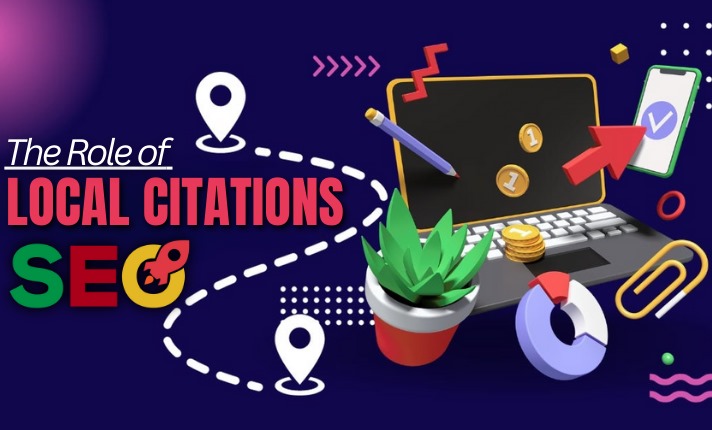
Introduction
In today’s digital age, local search optimization is crucial for businesses aiming to attract local customers. By optimizing your website for local search, you can increase your visibility in search engine results pages (SERPs) and drive more traffic to your business. This guide will provide you with essential tips and strategies to optimize your website for local search effectively.
1. Understanding Local SEO
Local SEO (Search Engine Optimization) focuses on optimizing a website to be found in local search results. These searches often include location-specific keywords such as “near me” or the name of a city or town. Local SEO helps businesses promote their products and services to local customers at the exact time they’re looking for them online.
2. Claim and Optimize Your Google My Business Listing
What is Google My Business?
Google My Business (GMB) is a free tool that allows businesses to manage their online presence across Google, including Search and Maps. A well-optimized GMB listing can significantly improve your local search visibility.
Steps to Optimize Your GMB Listing
- Claim Your Listing: Verify your business on Google My Business.
- Complete Your Profile: Ensure your business name, address, phone number, website, and business hours are accurate.
- Add Photos: Upload high-quality images of your business.
- Use Relevant Categories: Choose categories that best describe your business.
- Write a Compelling Description: Include relevant keywords and details about your business.
3. Utilize Local Keywords
Researching Local Keywords
To rank well in local search results, use keywords that include local terms. Tools like Google Keyword Planner, Ahrefs, and SEMrush can help identify local keywords relevant to your business.
Implementing Local Keywords
- Incorporate in Titles and Headers: Use local keywords in your page titles, H1 tags, and headers.
- Include in Meta Descriptions: Write compelling meta descriptions with local keywords.
- Use in Content: Naturally integrate local keywords into your website content, including blog posts and service pages.
4. Optimize On-Page SEO
Essential On-Page SEO Elements
- Title Tags and Meta Descriptions: Optimize these with local keywords.
- Header Tags (H1, H2, etc.): Use header tags to structure your content and include local keywords.
- NAP Information: Ensure your Name, Address, and Phone number (NAP) are consistent across your website and other online platforms.
- Mobile Optimization: Ensure your website is mobile-friendly, as many local searches are conducted on mobile devices.
5. Generate Local Content
Types of Local Content
- Local News and Events: Write blog posts about local news, events, or activities.
- Customer Stories and Testimonials: Share customer stories and testimonials from local clients.
- Local Guides and Resources: Create guides and resources relevant to your local audience.
6. Build Local Citations and Backlinks
What are Citations?
Citations are online mentions of your business’s NAP information. They help improve your local search rankings.
Strategies for Building Citations and Backlinks
- Submit to Local Directories: List your business in local online directories.
- Partner with Local Businesses: Collaborate with other local businesses for mutual backlink opportunities.
- Engage with Local Press: Get featured in local news outlets and blogs.
7. Encourage Customer Reviews
Importance of Reviews
Positive customer reviews can boost your credibility and improve your local search rankings.
How to Encourage Reviews
- Ask Satisfied Customers: Request reviews from happy customers.
- Make It Easy: Provide links to review sites like Google, Yelp, and Facebook.
- Respond to Reviews: Engage with customers by responding to their reviews.
8. Leverage Social Media
Social Media Strategies for Local SEO
- Create Local Content: Share content that appeals to your local audience.
- Engage with Followers: Respond to comments and messages from local followers.
- Promote Local Events: Use social media to promote your participation in local events.
9. Monitor and Analyze Your Local SEO Efforts
Tools for Monitoring Local SEO
- Google Analytics: Track your website traffic and user behavior.
- Google Search Console: Monitor your search performance and fix issues.
- Local SEO Tools: Use tools like Moz Local, BrightLocal, and Whitespark to track local SEO performance.
Conclusion
Optimizing your website for local search is essential for attracting local customers and staying competitive in your market. By implementing the strategies outlined in this guide, you can improve your local search visibility, drive more traffic to your site, and ultimately grow your business.
If you want to explore how Digital Vibes can help elevate your social media marketing strategy and achieve your business goals, please scroll down and click on our service button to discover our range of services. We are confident you’ll see great results with our service.
Share this post :
Our Service
Get Our Social Media Marketing Service







